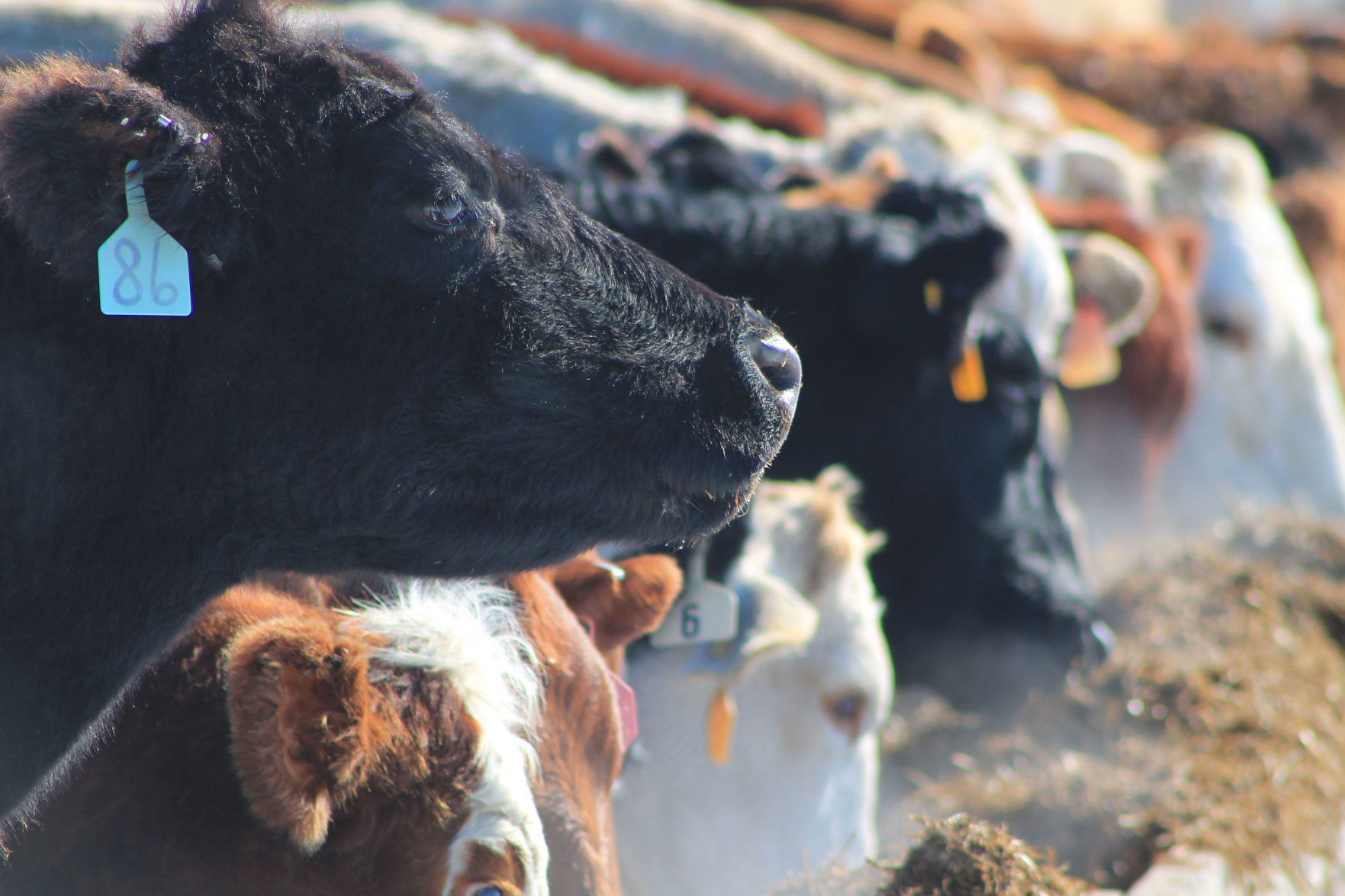The Federal Drug Administration is in the process of gathering comments on additional veterinarian supervision of antimicrobial drugs.
The comment period is open through Dec. 24. If approved by the FDA, implementation would be in September 2022. “Recommendations for Sponsors of Medically Important Antimicrobial Drugs Approved for Use in Animals to Voluntarily Bring Under Veterinary Oversight All Products That Continue to be Available Over-the-Counter” is available at https://www.federalregister.gov/documents/2019/09/25/2019-20688/recommendations-for-sponsors-of-medically-important-antimicrobial-drugs-approved-for-use-in-animals.
Dr. A.J. Tarpoff, an assistant professor and Extension beef veterinarian with the Department of Animal Sciences at Kansas State University, said antimicrobial resistance is a threat to public health, and does present a real challenge to both human and veterinary medicine. The changes are part of a process to foster proper stewardship of available products.
“The goal is to ensure long-term efficacy of the products that we currently use to treat and control disease,” Tarpoff said.
Dr. Brian Lubbers, an associate professor of food animal therapeutics at K-State, said the FDA and Center for Veterinary Medicine have a 5-year antibiotic stewardship plan. Three key goals of the plan include:
1. Align antimicrobial drug product use with the principles of antimicrobial stewardship;
2. Foster stewardship of antimicrobials in veterinary settings; and
3. Enhance monitoring of antimicrobial resistance and antimicrobial drug use in animals.
The FDA-CVM has not requested comments on the 5-year plan, as the plan does not specifically implement any actions, Lubbers said. That plan is available, which covers the fiscal years 2019-2023, is available at www.fda.gov/media/115776/download.
“This is the blueprint that they will use going forward with regard to antimicrobial use and stewardship,” Lubbers said. As specific actions are taken, they may ask for public comment.
What will be needed is comments about the veterinarians supervision of over the counter antimicrobial drugs.
There is a connection between the drugs used in humans and what are used food animals, Tarpoff said. Human medicine and veterinary medicine do share certain classes of antibiotics. That is what is referred to as “medically important.” These shared antibiotic classes are the first treatment and relied on for many human infections. Medically important antibiotics are the products that have been identified to have more critical oversight in food animals. That oversight has fallen on practicing veterinarians who have oversight of herd health on operations by producers.
Injectable oxytetracycline, penicillin, and sulfas are the major products that will be impacted for beef producers, the Extension veterinarian said.
The latest proposal is an extension of the Veterinary Feed Directive that was implemented several years ago. This would be an extension of the overall goal of putting medically important antibiotic usage decisions in the hands of veterinarians, Tarpoff said. Ninety-five percent of all medically important antibiotics (total quantity) used in food animal production is administered through the water or feed to treat and control disease. That 95% currently has all fallen either under the VFD oversight, or under veterinary prescription (water administration). The remaining 5% are mostly injectable products. Some of which can still be obtained over the counter. These OTC products are the ones that will be impacted.
The veterinarian said while change is always inherently difficult, he believes the VFD has gone very well.
“When the VFD came into effect, it created communication between the veterinarian, producer, feed manufacturer, nutritionist, pharmaceutical companies, and even government officials,” Tarpoff said. “I believe through this communication, better herd health decisions came about, as well as governing bodies seeing our industries take a change in stride. Our industries no longer use medically important antibiotics for growth promotion and feed efficiency. This in itself was a major positive to our consumer base that is increasingly curious how we raise food.”
The successful goal from the FDA was “judicious” use of antibiotics, but Tarpoff believes the bigger success story was increased communication and making more informed decisions that positively impacts these livestock herds’ wellbeing in the long run.
Producers can be proactive to be informed about the proposal and its impact. Producers should discuss the changes with their veterinarian, Tarpoff said. Discussing treatment of certain diseases and ensuring a valid veterinary-client-patient-relationship is the basis for veterinarians to be able to sell prescription medications to clients.
“Many producers may already have this agreement and purchase these products from their veterinarian,” the Extension veterinarian said. “If they do not, I would strongly encourage producers have a visit with their veterinarian.”
Tarpoff did not believe the change impact the producers’ bottom line. “I do not believe this will be that big of change for producers but it may change how these products are purchased, but this should be a much smaller change compared to the VFD.”
From his perspective, many in the livestock industry realized this was the next step in antimicrobial stewardship. The FDA, he said, has been very transparent with its 5-year plan, and regulators are interested in comments from the industry
“Changing certain products from OTC to prescription is just a piece of it. The rest of the plan includes readdressing products labels in regards to dosage and duration of therapy, companion animal antimicrobial stewardship, enhancing the process for new product development and better antibiotic use monitoring,” he said. “I think we need to remember that being able to use antibiotics is a great privilege and not a right. With privilege comes responsibility, and I believe that the livestock industries will continue to show their integrity in doing things right.”
Comments may be submitted on this draft guidance by the date provided in the Federal Register notice announcing the availability of the draft guidance No. 263. Submit electronic comments to https://www.regulations.gov. Submit written comments to the Dockets Management Staff (HFA-305), Food and Drug Administration, 5630 Fishers Lane, Rm. 1061, Rockville, MD 20852. All comments should be identified with docket number FDA-2019-D-3614.
Dave Bergmeier can be reached at 620-227-1822 or [email protected].



